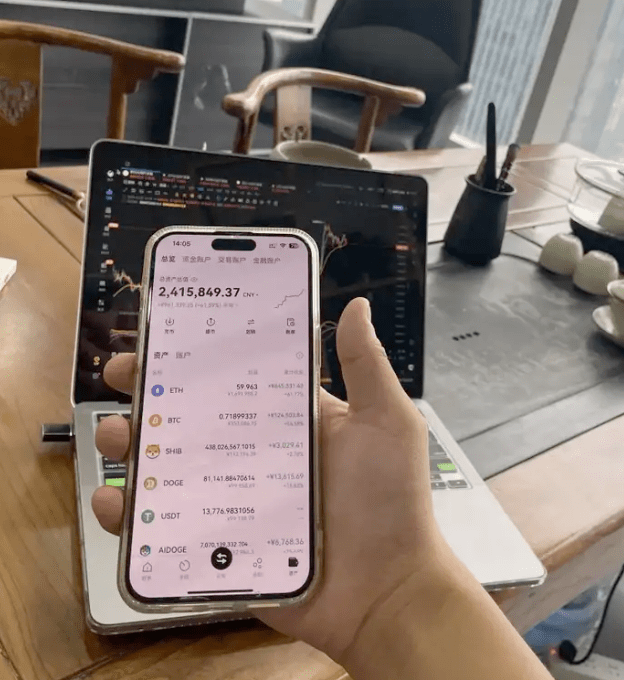
1. Making money requires underlying logic; without logic, earning money is purely luck. I often advise people in the crypto circle to invest in BTC regularly with large funds, and also allocate part of their investment to other assets that are less likely to go to zero, which should also be done through regular investment.
Many people think regular investment means buying in batches, avoiding buying at the peak, and not at the lowest. If it drops, they can use bullets to replenish; they may earn less, but they certainly lose less. They think this is the biggest benefit of regular investment.
The real benefit of regular investment is to change the thinking deep inside you, allowing you to truly hold onto this asset.
You must have experienced this: you go all-in, judge the price high or low, and then buy an asset. This asset just doesn't rise, like ETH or DOGE, and you hold it for a year and a half without seeing any increase. Even when Bitcoin hits new highs, it doesn't rise much, and you feel extremely tortured every day. Then finally, after a few days, it rises, and many people sell immediately because they break even. Some people don't even wait to break even and just sell directly, too lazy to even look.
Recently, many people said they sold a few days ago or sold directly when it surged. Those who fall before dawn are the most regretful.
Why can't they hold on? You can't blame them. The fundamental reason is that the holding time is too long.
Assuming you bought it on the same day and it dropped the same day, would you be anxious to sell? You are investing regularly every week or every day. Every time you buy, the holding time refreshes. If you have been investing for a year, as long as you buy once in the last week, then your brain thinks you have only held for a week. So why be anxious to sell, right? This is the greatest power of regular investment. ----- It can continuously refresh the holding time and deceive the brain's perception.
Besides me, there shouldn't be anyone else on the entire internet who can tell you this underlying logic.
Now you know how to hold on, right?
2. Recently, I've been making money on short positions in small coins, which is based on information advantage. I have previously said that buying BTC is the only information advantage we ordinary people have to make money: fiat currency inflation; it must rise.
Then what other small coins do you buy? Besides having an information advantage during a bull market, what else do you have? What basis do you have to judge that it can rise a lot? Moreover, even in a bull market peak, there are some that do not rise, okay?
Many people make money from altcoins because they have information advantages that we don't have. For example, those big KOLs on Twitter, they actually have their own groups. They have many experienced people thinking together, which is their biggest information advantage. Don't think that they are so powerful as individuals; the information we have access to may be superficial and shallow, making us hesitant to buy. Without an information advantage, it's just random buying.
I have recently optimized my strategy, and I can share it with everyone.
Because the market has risen quite a bit recently, solely shorting has some risks, in order to prevent a sudden surge in this big bull market.
This is how I do it: open long on BTC while simultaneously shorting small coins.
Assuming BTC rises in a bull market and small coins surge, then you lose a little less.
Assuming BTC crashes, small coins will plummet, yet you still make a profit.
Assuming BTC is sideways oscillating, the probability is high that small coins will gradually decrease, thus making a profit.
Assuming BTC rises and small coins fall, you still make a profit.
I use different strategies at each stage, and I guarantee that my losses are always minimal when I lose, and my profits are always substantial when I gain.
In the above scenarios, I am making a profit 75% of the time. With long-term accumulation, my USDT is consistently rising.#山寨季何时到来? $BTC


